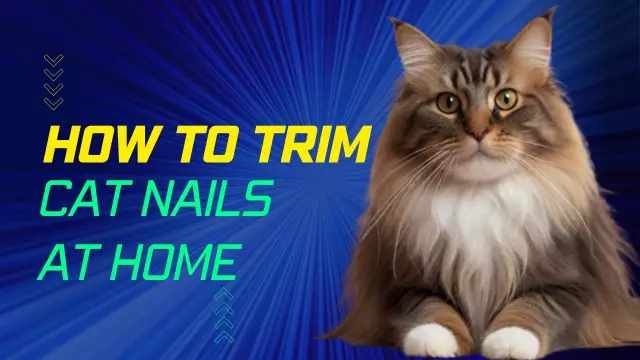- Author Delia Mathews mathews@animalspeace.com.
- Public 2023-12-16 00:05.
- Last modified 2025-01-22 15:45.
Onychectomy, or surgery to remove claws from a cat, is currently very popular, as it avoids problems with expensive furniture. However, the procedure is very painful and harmful to the cats themselves.

Many veterinary clinics in Russia perform onychectomy. Most often, this operation is asked to do by the owners of the animal, which begins to scratch and tear woven and leather furniture. The operation seems to the owners of the cat a simple and easy solution to the problem, but in fact, it can change the animal forever, making it disabled.
Biologically, the cat's claws are the terminal phalanges of the fingers. With the surgical removal of claws, the veterinarian actually removes the phalanges of the fingers, depriving the cat of important parts of the body, with which it not only clings to various surfaces when moving, but can defend itself in case of an attack. This becomes especially important if the animal is not constantly kept at home, but also happens to be a summer cottage or has the opportunity to go outside.
Operational process
Technically, the operation is performed under general anesthesia, which in itself is harmful to the health of any animal. The operation is quite complicated and can lead to unpleasant consequences in the form of severe bleeding and the introduction of pathogens into an open wound. The postoperative period can drag on for several weeks: of which at least 10 days, the animal must be in a special collar so as not to comb and lick the wounds. With the unprofessionalism of the veterinarian, the claws can begin to grow again, but at the same time inside the foot, injuring the cat and causing severe pain.
Consequences of claw removal
In addition to the strongest stress suffered, onychectomy leads to such consequences as curvature of the spine (due to amputation of the claws, the cat's center of gravity changes and, as a result, the manner of movement), the appearance of arthritis, and constant pain in the paws.
Postoperative changes will not only affect the physiological state of the cat. The mental health of the animal will be impaired forever, since the claws are not just a part of the cat's body, but its most important natural defense. Deprived of its most powerful weapon, a cat will never be able to feel safe even in a city apartment, since claws help not only to cope with enemies, but also to jump, run, and coordinate while moving. It is highly likely that the operated animal can become nervous, apathetic, and stop feeling affection for the owner. Very often, clawless and embittered animals begin to bite all family members to express their emotions.






